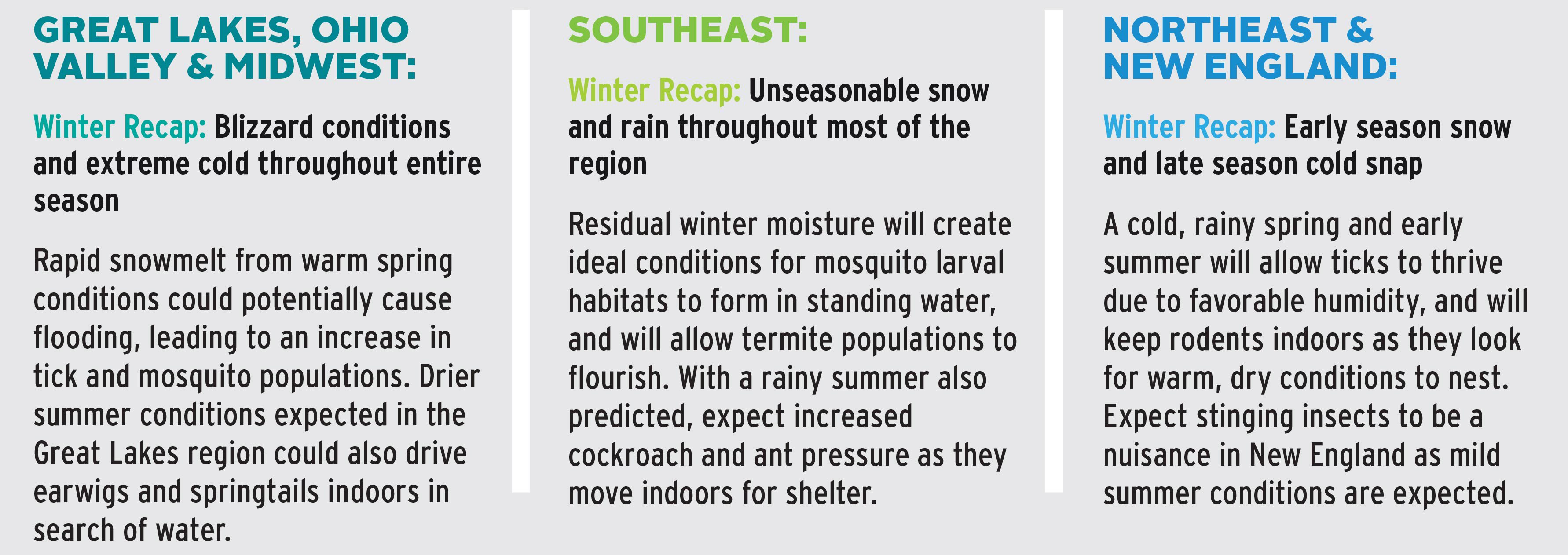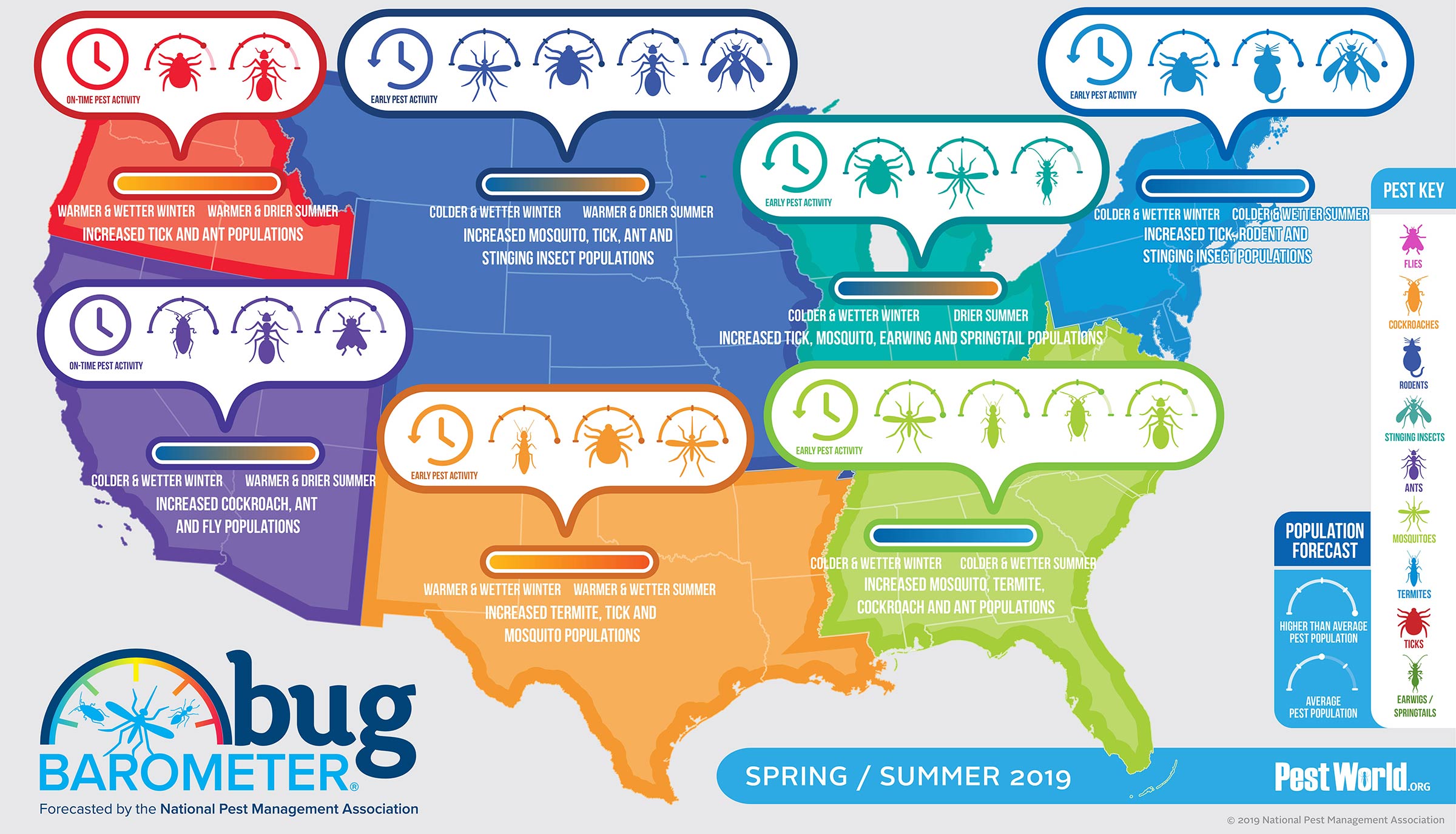April showers bring May flowers, but a wet winter is just guaranteed to bring spring and summer bugs. Here’s how bad it’s about to get in your region.
After an overly wet winter across the United States, earlier-than-normal pest population explosions are expected in most areas of the country, as most insects thrive in humid, moist conditions. And according to the National Pest Management Association (NPMA), who just released its annual Bug Barometer, these insects are more than just unwelcome visitors in your home—they can also be dangerous.
“While some pests are just a nuisance, others are vectors of disease,” warns Brittany Campbell, PhD, Entomologist with the NPMA. “They are able to transmit pathogens to humans through their bites, making awareness and prevention paramount to protecting public health.”
The NPMA’s Bug Barometer shows which insects will be most prevalent in the different regions of the country. The Southeast, for instance, along with the Great Lakes, Ohio Valley, and Midwest, are likely to see a spike in mosquitoes, thanks to moisture carried over from winter. In the Northeast and South Central United States, on the other hand, ticks will be out in full force—as both regions experience both rainy springs and rainy summers.
Some of the most populous pests, however, will be cockroaches, which not only spread 33 different kinds of bacteria but also trigger allergies and other respiratory issues. “Having cockroaches indoors has been shown to cause an increase in severe asthma in children, especially in inner cities where infestations are more prevalent,” Campbell explains. Both the Southwest and the Southeast could experience a higher-than-usual cockroach population.
To prepare for—and prevent—pests no matter where you live, Campbell recommends regularly cutting grass to a low height and getting rid of any overgrown brush or debris in your yard. And to keep insects out of the house, she advises homeowners to tightly seal cracks, crevices, and gaps on the home’s exterior with an appropriate sealant, and to check around pipes and plumbing for any leaks that might attract pests looking for water.
Finally, protect yourself from biting and stinging insects while outdoors by wearing long pants, long-sleeved shirts, and closed-toe shoes, especially around wooded areas or tall grass, advises Campbell. For an extra layer of defense, apply a bug spray with at least 20% DEET, which is the most common active ingredient in bug repellant, as needed, according to the label. You may also want to check out these 15 essential products for people who hate bugs.




